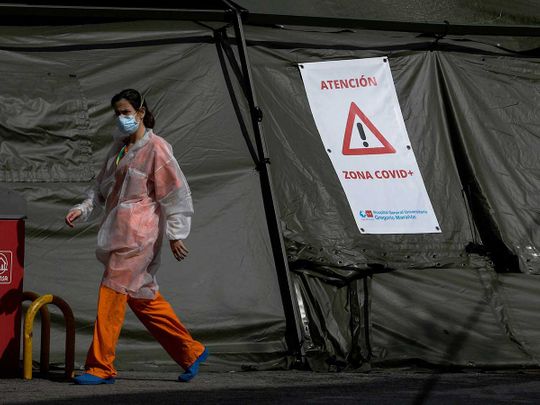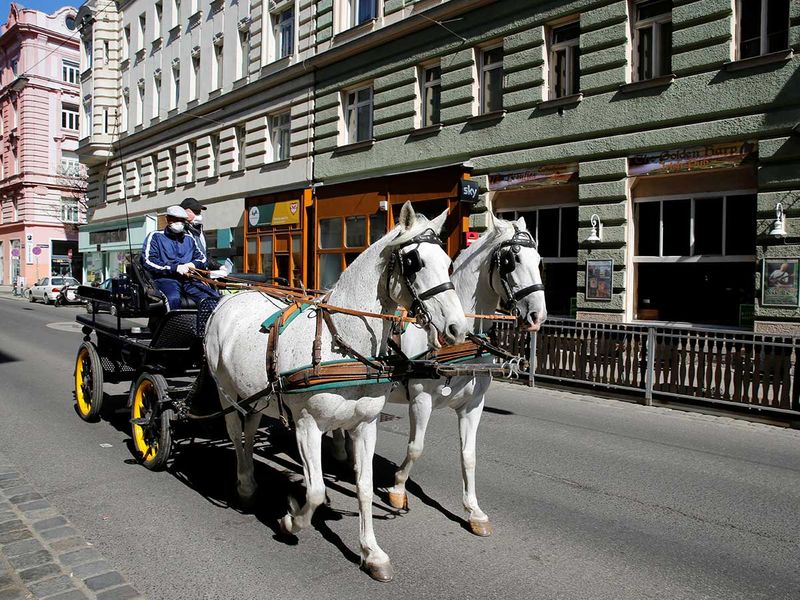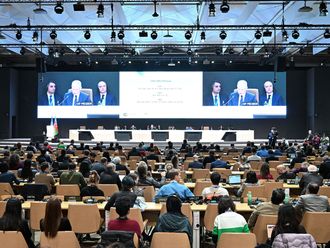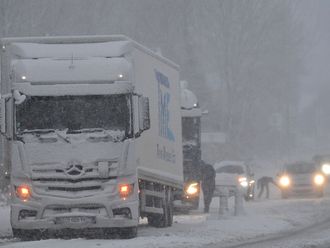
Vienna: Despite "positive signs" from some countries, it is too early to scale back measures aimed at containing the spread of the coronavirus, the World Health Organization's European office said Wednesday.
"Now is not the time to relax measures," WHO regional director for Europe, Hans Kluge, told a news conference.
"It is the time to once again double and triple our collective efforts to drive towards suppression with the whole support of society."
Kluge called on "all countries" to strengthen their efforts in three main areas.
Firstly, protecting health service workers, including training and making sure they have the necessary support structures.
Second, authorities needed to focus on stopping and slowing the spread of COVID-19 by using public health measures aimed at separating "healthy people from suspected and probable cases".
Third, governments and authorities had to continuously communicate with communities to make people conform to "current and possible future measures".
Several European countries are planning to start easing coronavirus lockdowns, resuming economic and social life for millions.
"There is no international benchmark on the matter," said Austrian Chancellor Sebastian Kurz.
The small Alpine nation this week became the EU's first to schedule a gradual loosening of confinement restrictions from next week.
Denmark and Norway have followed suit, while Greece, Portugal and Slovenia have raised the possibility of easing restrictions even as the World Health Organization warned not to.
Flattening curve
Austria, Norway and Denmark believe they have "flattened" the COVID-19 contamination curve.
In Austria, which has reported more than 12,800 coronavirus infections, the daily rise has slowed to around 2.0 percent.

This compares with 40 per cent in mid-March before schools, restaurants and shops except supermarkets and pharmacies were closed and restrictions on leaving homes were issued.
Norwegian Health Minister Bent Hoie said coronavirus infections - there are now more than 5,800 reported in the country - were "under control".
The government said the reproduction rate - the number of new people infected by each patient with the virus - had fallen to 0.7.
This is down from 2.5 in mid-March when containment measures such as banning sports and cultural events and closing educational institutions were introduced.
The number of deaths in Austria (273), Denmark (218) and Norway (80) has also been contained, and medical systems have not been overwhelmed.
Gradual relaxation
Easing restrictions would be done step by step, officials have said, with many measures to remain in place for months to come.
Austria wants a gradual opening of shops from April 14. Hotels and restaurants, as well as primary and secondary schools could open again from mid-May.
Meanwhile, in Denmark, school classes are to resume gradually from April 15.
No date has been announced for the reopening of bars, restaurants, hair and massage salons, shopping centres and nightclubs.
In Norway, nurseries will re-open on April 20, and some high school, college and university classes will resume on April 27.
In all three countries, re-authorising large gatherings or sport or cultural events remains out of the question until at least July or August.
Greece, on the other hand, has said it hopes for a "return to normalcy" in May, just like Portugal, provided that people strictly comply with confinement measures until then.
'Emergency break'
But even those who are easing restrictions warn of the risk of a second wave of infections.
Officials in Austria, Denmark and Norway have emphasised they are continuously assessing the situation and that restrictions can be reinstated if necessary.
Kurz has said the government "always has the possibility of hitting the emergency brake".
Regular hand washing, respecting the distance of at least one metre (3.3 feet) in stores and even limiting the number of customers is expected to continue.
Austria has also made it compulsory for people to cover their mouth and nose in supermarkets and public transport.
Travel uncertainties
With EU member states at different stages of the pandemic, international travel restrictions look set to outlast many other measures taken to contain the virus's spread.
Denmark's borders remain closed, and Austria's Kurz warned "as long as there is no effective vaccination or medicine, this disease will accompany us and there will be no freedom to travel as we know it."
The European Commission on Wednesday is debating a road map to ease the bloc out of a virus lockdown.
Meanwhile, French local authorities have decreed a tightening of restrictions.
And an Italian official has warned the country was "far from the end of the crisis".
Scientists warn that the so-called "herd immunity" in countries like Austria is still estimated to be low.
"As soon as the restrictions are relaxed, the number of infections will again increase a little," said virologist Elisabeth Puchhammer-Stoeckl of the Medical University of Vienna.
"The goal is that this takes place in a controlled manner" with a hospital system capable of treating serious cases and tests in sufficient quantity, she added.












